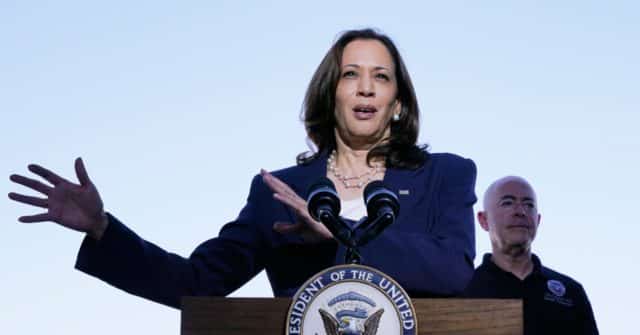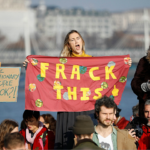The U.S. Supreme Court (SCOTUS) on Thursday sided with the Americans For Prosperity Foundation (AFP) against Acting California Attorney General Matthew Rodriguez in favor of keeping non-profit donor records private, smacking down a measure pushed by Vice President Kamala Harris that conservatives feared could be used to target them.
“The government may regulate in the First Amendment area only with narrow specificity, and compelled disclosure regimes are no exception,” Chief Justice John Roberts wrote for the majority in a 6-3 decision. “When it comes to a person’s beliefs and associations, broad and sweeping state inquiries into these protected areas discourage citizens from exercising rights protected by the Constitution.”
The Court held that California’s disclosure requirement is invalid because it burdens donors’ First Amendment rights and is not narrowly tailored to an important government interest.
While Vice President Kamala Harris was still Attorney General of California, she sent a letter to AFP in 2013 asking the non-profit to send Schedule B forms to disclose its largest donors. A Schedule B is a highly confidential form that lists the names and addresses of a charity’s major donors—including those who live outside of California, according to the Cato Institute.
AFP declined to send the forms, saying doing so would dissuade people from donating and would violate the First Amendment.
Xavier Becerra took over as Attorney General for Harris, but was soon succeeded by Matthew Rodriguez when he became United States Secretary of Health and Human Services. In the case, Rodriguez alleged that the Attorney General’s Office began asking for Schedule B forms in 2010— in the same way the Internal Revenue Service does — to fight charitable fraud and self-dealing.
They further claimed they were not asking for Schedule B forms as a way to target people or publicly out individuals for supporting causes, according to court documents.
AFP, which is a conservative organization, cited an incident in which California released 1,800 Schedule B forms to the public, despite the state’s confidentiality law.
AFP further argued the Attorney General’s Office had only used Schedule B forms five times for investigations. Instead, AFP said the AG should behave the way 47 other states do and subpoena non-profits for records during an investigation, according to court briefings.
A trial-court ruled in favor of AFP before the decision was reversed in the U.S. Court of Appeals for the Ninth Circuit. The Supreme Court reversed the Ninth Circuit’s ruling, saying in part:
California has not considered alternatives to indiscriminate up-front disclosure. That is true in every case. And the State’s interest in amassing sensitive information for its own convenience is weak. That is true in every case. When it comes to the freedom of association, the protections of the First Amendment are triggered not only by actual restrictions on an individual’s ability to join with others to further shared goals. The risk of a chilling effect on association is enough, because First Amendment freedoms need breathing space to survive. [emphasis added]
In his opinion, Roberts emphasized the First Amendment’s role in protecting freedom of association and how the concept applies to AFP.
“Protected association furthers a wide variety of political, social, economic, educational, religious, and cultural ends and is especially important in preserving political and cultural diversity and in shielding dissident expression from suppression by the majority,” Roberts wrote. [emphasis added]
He noted that compelled disclosure of affiliation could act as a restraint on freedom of association as effectively other forms of government action.
Roberts further said he does not doubt California has an important interest in preventing wrongdoing by charitable organizations. He concluded however, that there is a “dramatic mismatch” between the interests of the Attorney General’s Office and the disclosure process they use to investigate those crimes.
In reality, then, California’s interest is less in investigating fraud and more in ease of administration. This interest, however, cannot justify the disclosure requirement. The Attorney General may well prefer to have every charity’s information close at hand, just in case. But the prime objective of the First Amendment is not efficiency. Mere administrative convenience does not remotely reflect the seriousness of the actual burden that the demand for Schedule Bs imposes on donors’ association rights. [emphasis added]
Justice Kavanaugh and Justice Barrett joined Roberts in full, and Justice Alito and Justice Gorsuch joined in part. Alito and Justice Thomas filed concurring opinions. Justice Sotomayer wrote a dissenting opinion followed by Justice Breyer and Justice Kagan.
The case is Americans For Prosperity Foundation v. Bonta, No. 19-251 in the Supreme Court of the United States.






